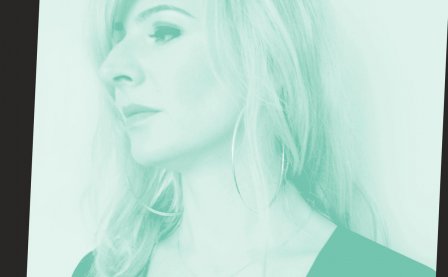When we talk about the long and storied history of songwriters sitting down, singing, and playing the guitar, we’re often talking about people using music as a form of dealing with pain. Of course, there’s a colorful spectrum of artists out there, but the solo guitar is classically viewed as a vehicle for channeling the musician’s sorrow. This can be comforting in its universality, but also challenging to the artist. Guitar music has covered quite an expanse in the past century, and isn’t part of expressing one’s suffering putting it in terms that are meaningful and specific to that person? Isn’t the point of speaking up to add one’s voice to the conversation?
In her interview with TMT back in 2009, Heather Leigh spoke on this subject: “I’ve touched on negative ideas and feelings in the past. I consider that a full circle from positive things as well, but I definitely like to think of what I’m doing as more celebratory than negative.” She brings up an important point. Although someone like Stephen O’Malley, Bill Orcutt, or Robert Johnson may be tearing head on into their own darkness when they play, what they find is ultimately a kind of redemptive energy, a source of power in their grief that turns their act into a kind of joyful exorcism. True, unbridled pain is a state as cathartic as any bliss, and to see an artist tap into that feeling in such a naked way is to witness a new method of emotional release.
Heather Leigh’s past explorations of pain have been both disorienting (2007’s Devil If You Can Hear Me) and enveloping (this year’s Nightingale), but this time, on I Abused Animal, she dissolves her misery into a fine, translucent dust. Leigh’s primary mode of shredding comes via the slide guitar, an instrument that she’s mangled alongside the likes of underground heavies like Chris Corsano, Peter Brötzmann, and Jandek, and her newest release comes courtesy of Editions Mego’s Stephen O’Malley-fronted Ideologic Organ imprint. On I Abused Animal, her playing is sparser than sparse, leaving ample room for her quivering, deep vocal style; even when she does crank it up, as on “All That Heaven Allows” or “The Return,” there is still an overpowering feeling of emptiness, an evident lack of textures surrounding her buzzsaw guitar that she can’t hope to fill. Oftentimes she’s content to let one spidery riff circle the drain endlessly (“Quicksand”) and more than once she goes completely a cappella, an effect that would normally lend an album a sense of intimacy, but I Abused Animal seems resistant to emotional refuge.
Despite how she may have felt about her music at the time of that interview, there is nothing celebratory about I Abused Animal. Most of these songs consist entirely of a single musical phrase repeated ad nauseam, with little adjustment in dynamic from start to finish throughout their consistently long runtime. Rather than giving herself room to delve deep within the anguish she describes in these pieces, Leigh ends up merely floating above the surface of it, creating a kind of music that hints at emotional ruin but ends up being surprisingly passive. Perhaps what I Abused Animal is striving for is the feeling of numbness, the total lack of response that comes from a lifetime of abuse, yet this album doesn’t speak directly about that type of pain either. Numbness is a retreat for victims precisely because it is a more comfortable place to be than suffering, tragic as it may be. Leigh’s performance throughout I Abused Animal ends up closer to a kind of middling discomfort, not brutal enough to elicit a strong response, not graceful enough to allow tender personal connection.
But then, there is the transformative, unspeakably terrific closing track “Fairfield Fantasy.” As a finale, “Fairfield Fantasy” fulfills all the promise of I Abused Animal, a gentle, moving requiem that utilizes Leigh’s vocals and the slide guitar’s distinct abilities to drown the listener in a melancholic sea of phantom vibrations. Here, Leigh’s vision is rendered in glorious detail: a refined enhancement on her previous work, a full-fledged song that moves in sections without losing its hypnotizing and formless morbidity. Even if Leigh’s performance is a wilted one, it taps into a very real sense of loss, a desolation that purifies as much as it annihilates. While I Abused Animal is too cruel an album to find any kind of conventional joy in, I’m excited to see where she’ll continue to take her undeniably idiosyncratic voice in the future.
More about: Heather Leigh, Heather Leigh Murray, Ideologic Organ




